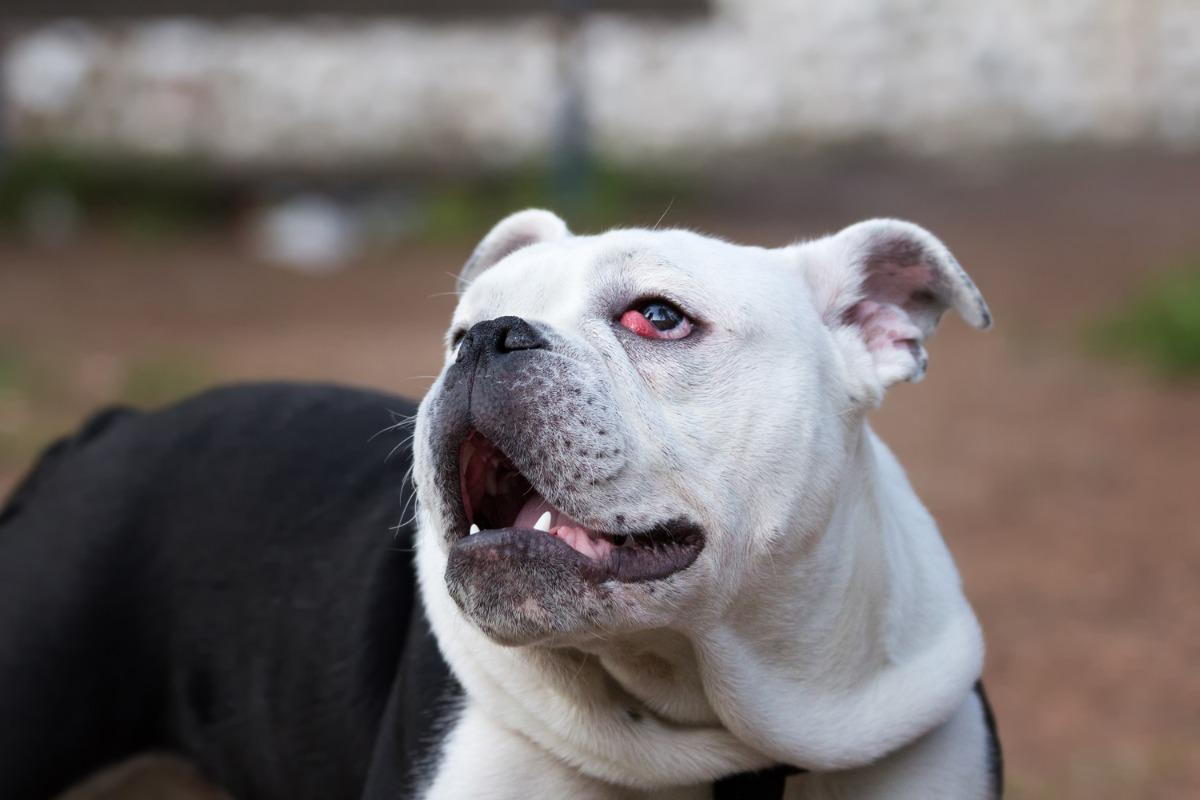
How to Tell if Your Pet Has An Eye Infection
- posted: Nov. 07, 2019
Durham Pet Advice: How to Tell if Your Pet Has an Eye Infection
When you love your pet, you’re likely to see even small changes in behavior. It’s how we all notice problems that eventually lead to the vet. Rather than worry about all of the things that could potentially go wrong, let’s instead focus on learning ways to detect minor problems before they get out of control. One area of attention is the eyes. Pets get eye infections, just like humans, so here are a quick and easy pet eye infection FAQs from Durham’s New Hope Animal Hospital to help you spot problems and take care of your furry friends.
What Does a Dog’s Eye Infection Look Like?
There is a group of symptoms that can alert you to an eye infection. By far, the most common of those are red and/or swollen eyes. These symptoms can come from more than just eye infections, but they’re the first indicators. Pet behavior can also help you identify a problem. Pawing at the eye, light sensitivity, holding an eye closed, squinting and blinking are all behaviors that show you there’s an issue. Lastly, thick or smelly discharge from the eye should be a sure sign that it’s time to see the vet.
What About Cat Eyes?
All of the dog eye symptoms can also apply to cat eyes. A few extra signs are more common among the felines. For starters, protruding eyelids may cover part of an infected eye. If it’s persistent, you should take a closer look. Additionally, cats are more prone to displaying eye symptoms when they have an infection elsewhere. This means you should look for nasal discharge and sneezing as accompanying symptoms. Lastly, to reiterate, redness and discharge from the eyes are the classic symptoms you shouldn’t ignore.
How Are Eye Infections Treated by the Veterinarian?
Treatments always depend on the exact nature of the problem and the animal affected. In general, you can expect some form of eye drops or ointment to be part of the course, but they can serve a wide range of functions. One of the most common eye treatments will be antibiotics. For an infection specific to the eye, oral antibiotics are less likely to be the preferred medication. When the infection is viral, medicine won’t directly combat the virus, but eye drops/ointments can reduce symptoms and mitigate the risk of complications.
The caring experts at New Hope Animal Hospital in Durham are always ready to take a peep at your pet’s eyes. If you ever have concerns, feel free to bring them in and get them some TLC.

How to Tell if Your Pet Has An Eye Infection
- posted: Nov. 07, 2019
Durham Pet Advice: How to Tell if Your Pet Has an Eye Infection
When you love your pet, you’re likely to see even small changes in behavior. It’s how we all notice problems that eventually lead to the vet. Rather than worry about all of the things that could potentially go wrong, let’s instead focus on learning ways to detect minor problems before they get out of control. One area of attention is the eyes. Pets get eye infections, just like humans, so here are a quick and easy pet eye infection FAQs from Durham’s New Hope Animal Hospital to help you spot problems and take care of your furry friends.
What Does a Dog’s Eye Infection Look Like?
There is a group of symptoms that can alert you to an eye infection. By far, the most common of those are red and/or swollen eyes. These symptoms can come from more than just eye infections, but they’re the first indicators. Pet behavior can also help you identify a problem. Pawing at the eye, light sensitivity, holding an eye closed, squinting and blinking are all behaviors that show you there’s an issue. Lastly, thick or smelly discharge from the eye should be a sure sign that it’s time to see the vet.
What About Cat Eyes?
All of the dog eye symptoms can also apply to cat eyes. A few extra signs are more common among the felines. For starters, protruding eyelids may cover part of an infected eye. If it’s persistent, you should take a closer look. Additionally, cats are more prone to displaying eye symptoms when they have an infection elsewhere. This means you should look for nasal discharge and sneezing as accompanying symptoms. Lastly, to reiterate, redness and discharge from the eyes are the classic symptoms you shouldn’t ignore.
How Are Eye Infections Treated by the Veterinarian?
Treatments always depend on the exact nature of the problem and the animal affected. In general, you can expect some form of eye drops or ointment to be part of the course, but they can serve a wide range of functions. One of the most common eye treatments will be antibiotics. For an infection specific to the eye, oral antibiotics are less likely to be the preferred medication. When the infection is viral, medicine won’t directly combat the virus, but eye drops/ointments can reduce symptoms and mitigate the risk of complications.
The caring experts at New Hope Animal Hospital in Durham are always ready to take a peep at your pet’s eyes. If you ever have concerns, feel free to bring them in and get them some TLC.
Visit Our Office
New Hope Animal Hospital
5016 Durham-Chapel Hill Blvd
Durham, NC 27707

